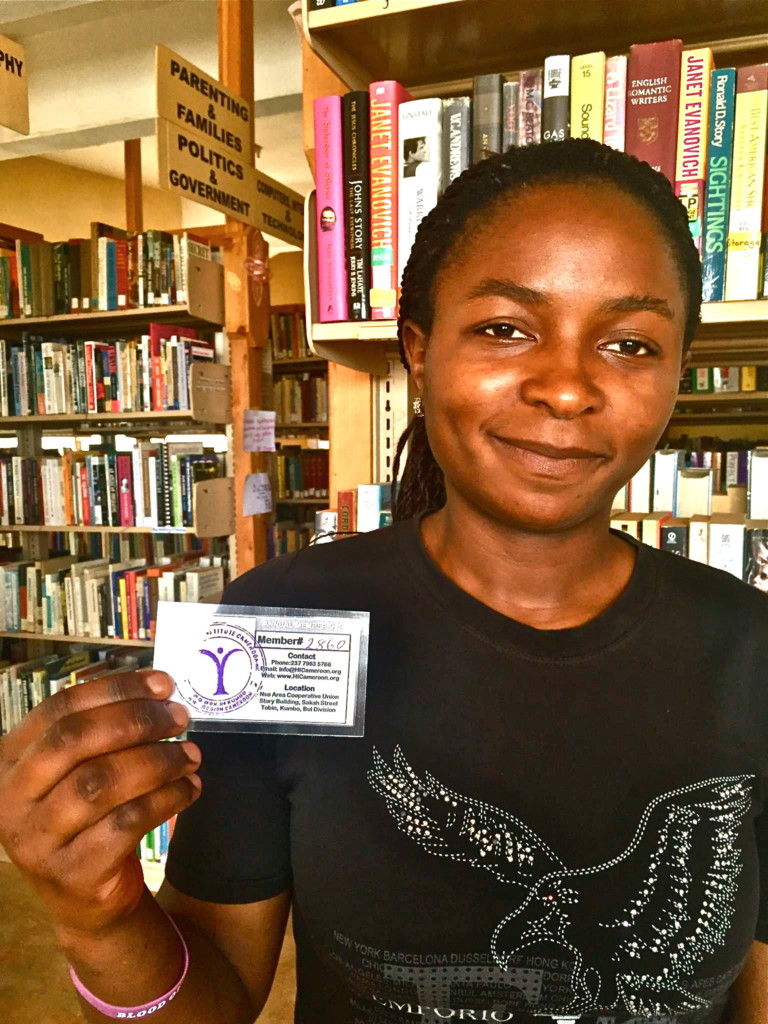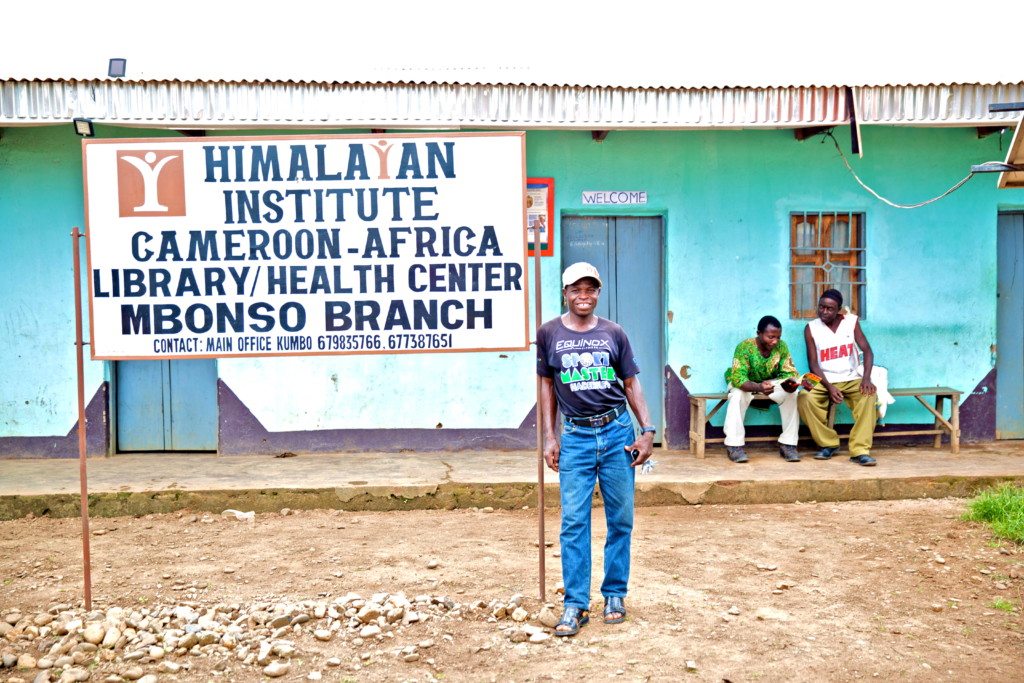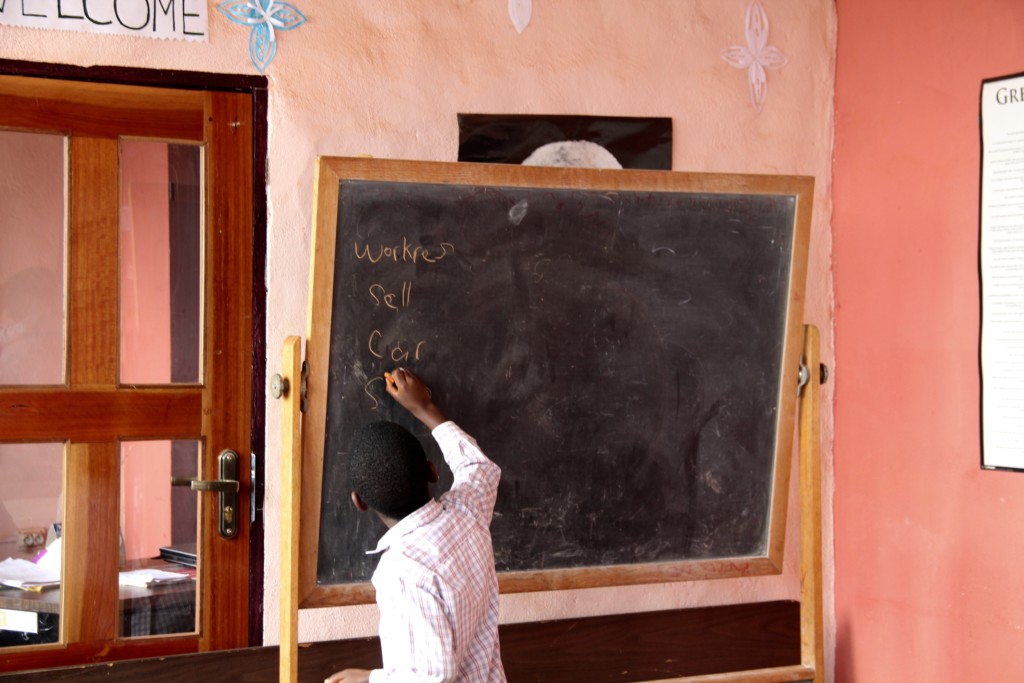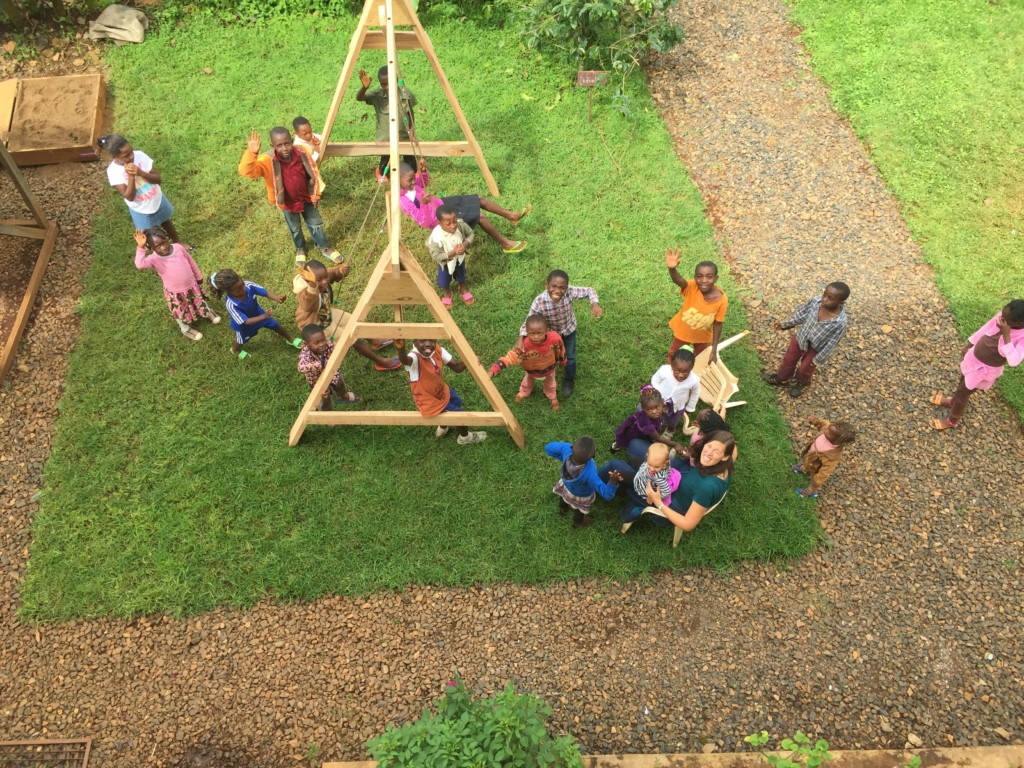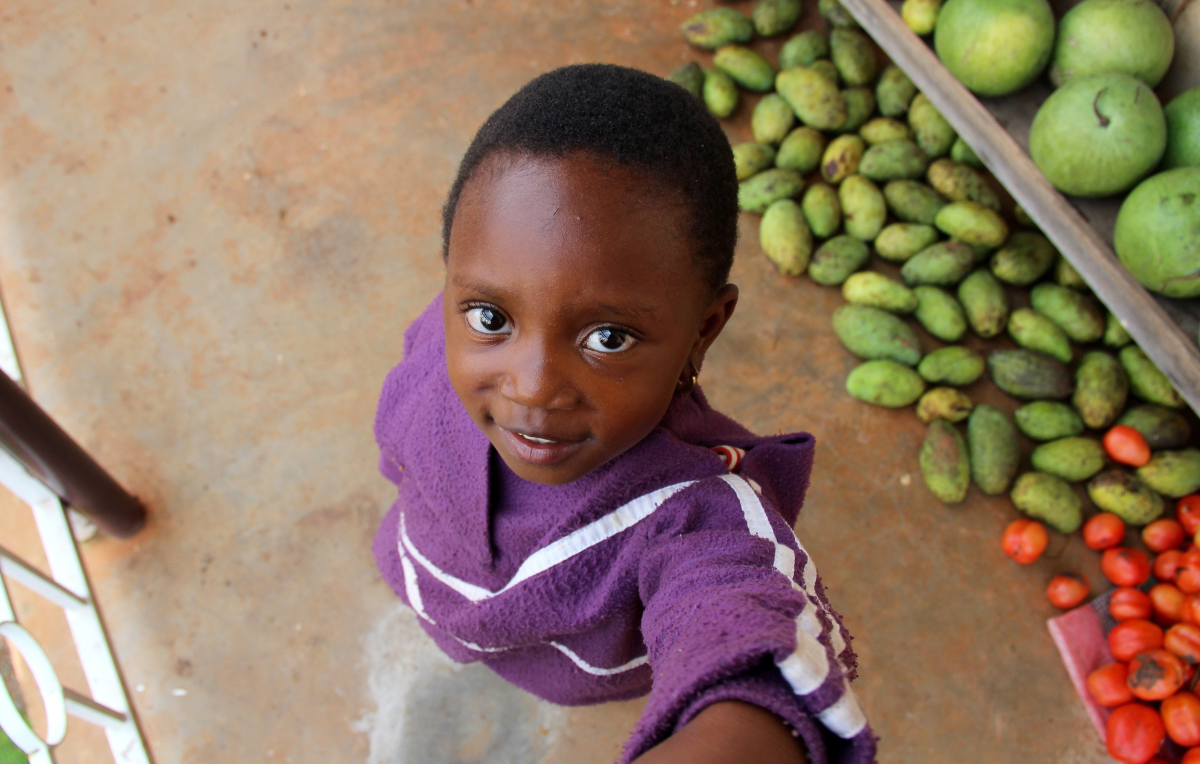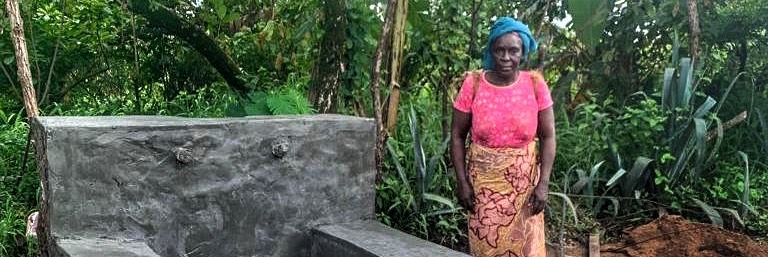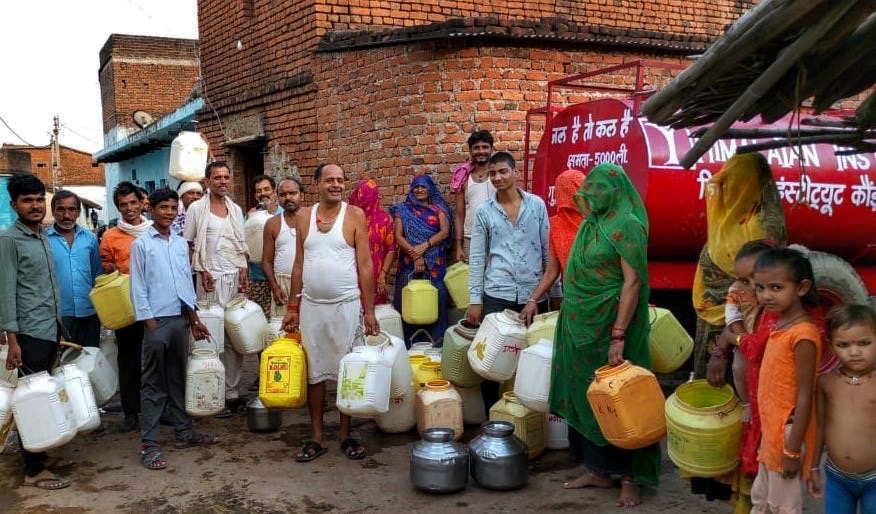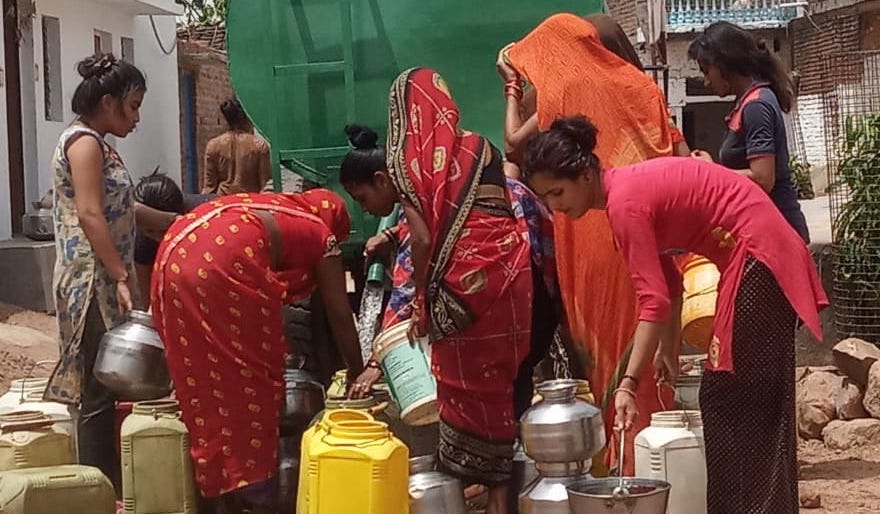More and more, researchers are beginning to see that it is not just teachers, topics, and classroom materials that matter, but the specific space a student learns in also has an effect on educational outcomes. At Himalayan Institute Cameroon, part of our Public Library Network’s prime initiative—to offer students structured learning opportunities—relies on the safe, spacious, and resource-rich public library centers we provide. Constructed across multiple regions of Northwest Cameroon, these public libraries offer students the opportunity to learn amongst peers in a space specifically designed for learning.
When the Kumbo Public Library first opened (our largest library to date), people young and old would walk for hours to come to the library—waiting in lines stretching far down the road just to get in. This illuminated the significance, desire, and unmatched value people in Northwest Cameroon place on education and having a place where they can specifically go to study. However, for many students and families, their homes or great outdoors do not offer adequate spaces for this kind of focused learning. With the distractions of home responsibilities, noise, and limited electricity for reading or studying, spaces catered to learning create a substantial impact on the students of this largely underserved population.
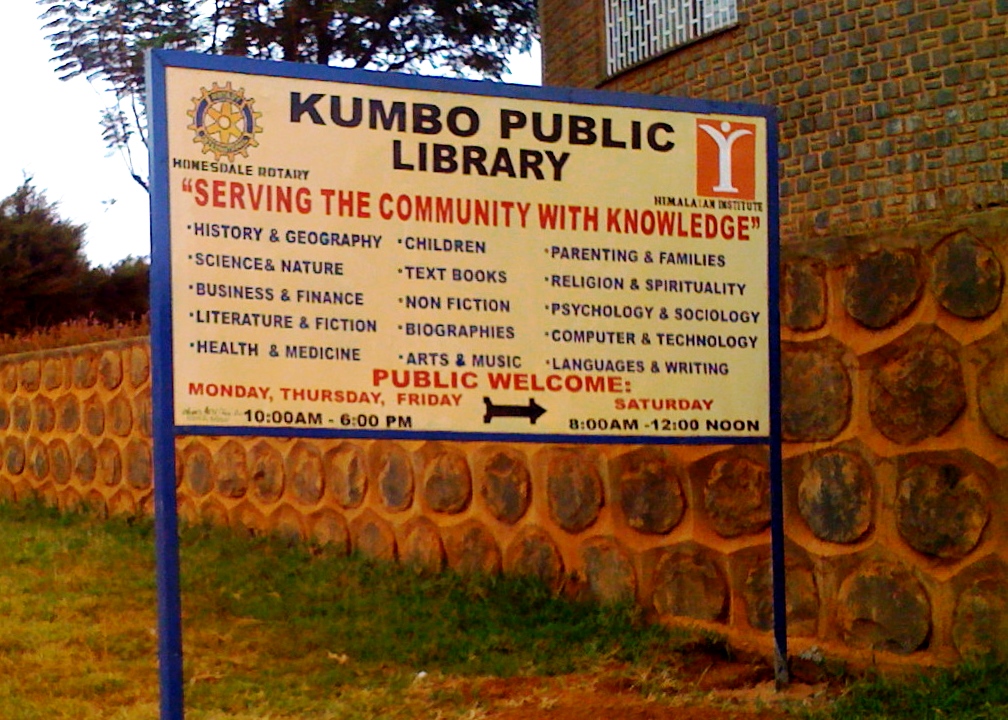
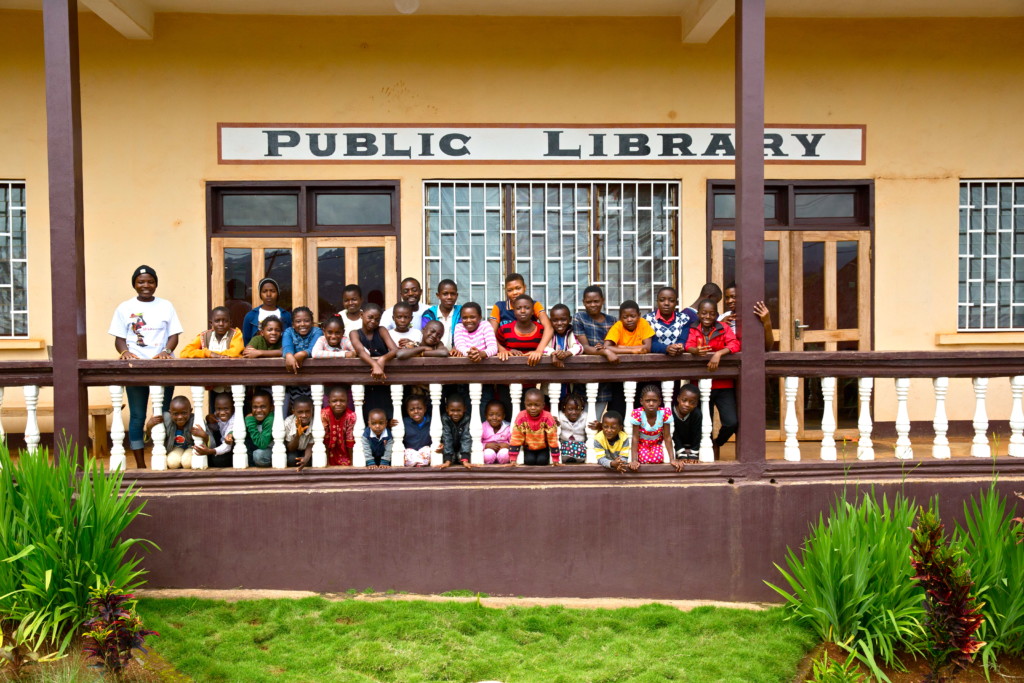
Why We Need Specific Spaces For Learning
Numerous studies done in recent years on the effects of environment on learning have shown that three main external factors matter the most: light, sound, and air quality. Students need proper light to read and feel energized while learning, the quiet of designated study spaces to concentrate and learn new ideas, and clean welcoming spaces where they can relax, breathe easy, and be themselves.
The Public Library Network offers access to multiple types of study rooms, textbooks and materials for students who cannot afford to buy their own, mentors and tutors, and a community of peers with whom to find motivation and a sense of self-confidence.
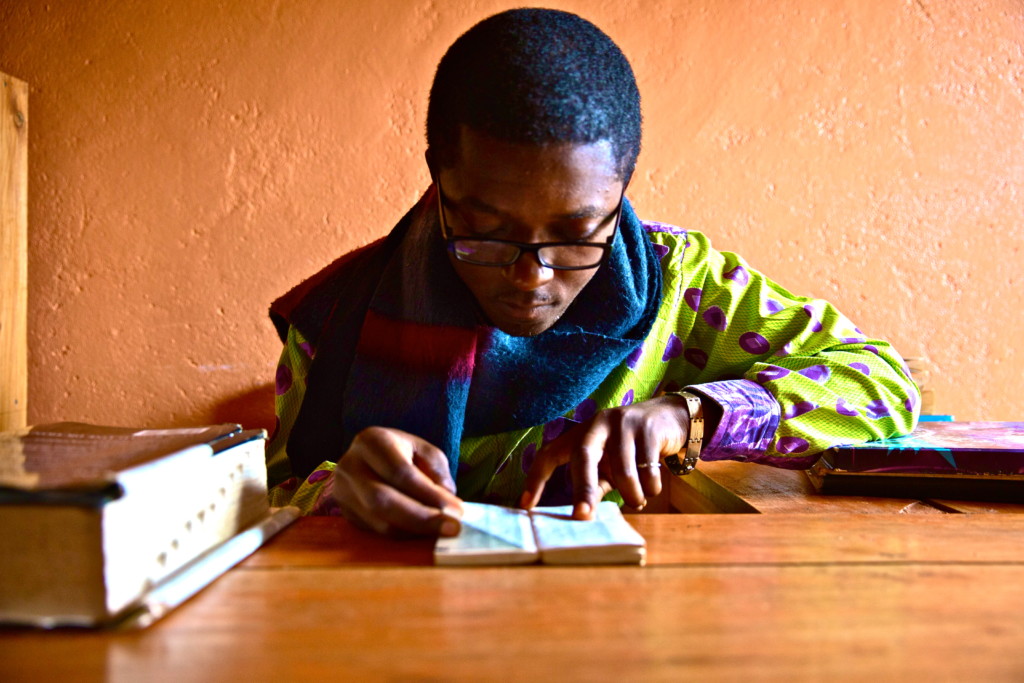
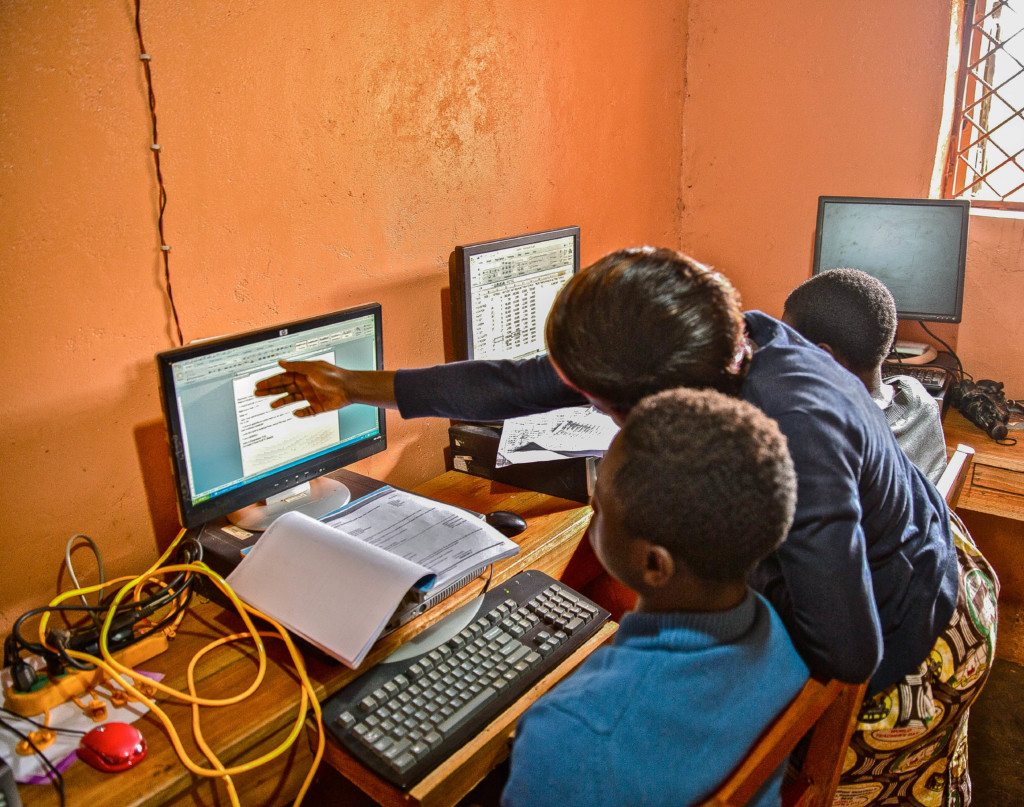
A Place To Call Home
Similar research on children in learning environments found that one of the most important aspects of learning comes in the form of belonging: feeling like you are a crucial part of a cohort, being accepted into a community that embraces and encourages you, and having different kinds of people who you can rely on for help. Public libraries offer this sense of community, and for many people in Northwest Cameroon, being a part of the Public Library Network has given them an additional place to call home—a place in which they can feel free to discover, learn, fail, try, and try again. We receive an incredible amount of feedback on how appreciative people are to simply have a space they can go to study and read, or get together with a group who want to learn something new.
For younger children in particular, a public library can offer a place to truly just be—somewhere they can go after school or where they can be with their friends in a more casual atmosphere. This helps facilitate greater peer-to-peer learning skills in a manner combining play with rote learning—something that is not often found in traditional Cameroonian schools. This camaraderie with fellow library users gives even the youngest students greater ability to see a future for themselves beyond the educational boundaries normally dictated by the ways of their society. Along with mentors and teachers supporting those extracurricular goals, students in the Northwest region have a much higher chance of completing school and even going onto higher education (a rarity particularly for young women in Cameroonian society) when they access the resources available from public libraries. Along with scholarships, academic resources coordinated with local schools, and mentor/peer support, students using the Public Library Network have a much higher rate of educational success—success largely stemming from the simple fact they have a great space in which to learn.
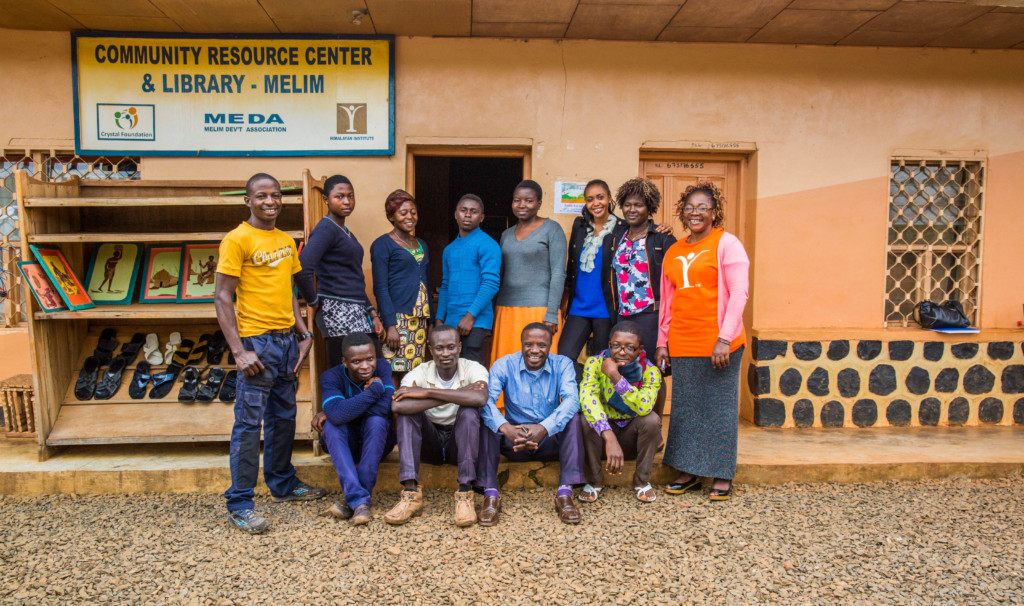
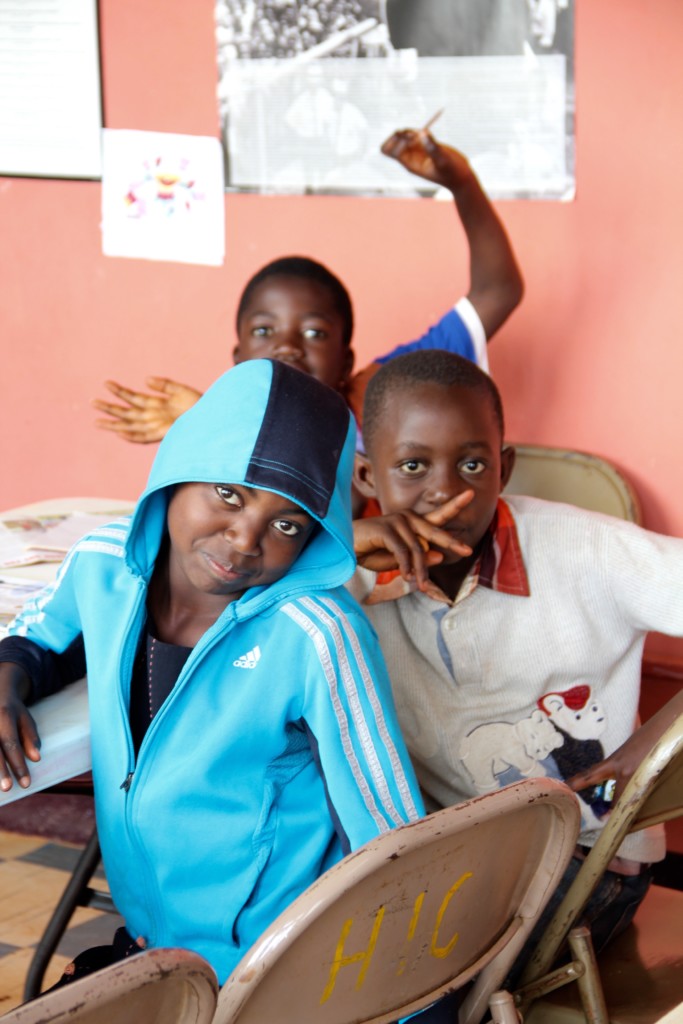
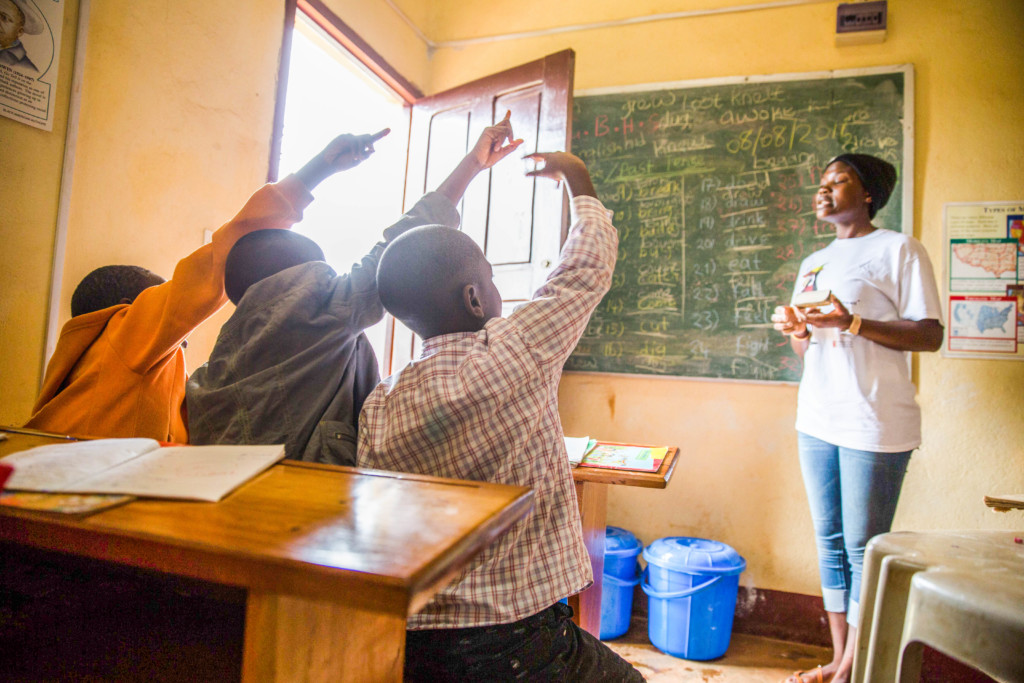
Engaging Communities
Providing healthy, productive spaces for learning usually comes with the task of cultivating a sense of security for students. Offering local students a place that they know is safe, clean, well-lit, and containing materials relating directly to their school work, creates a huge draw for many students who feel like they have nowhere else to study. Secure spaces like this create an environment that enables children to cope with the daily demands of their lives—the trials and tribulations they may have to face being at home or in school, or even the jobs they may have to take on to help their families survive.
A space in which these individuals can let worries and responsibilities go in order to focus on their own goals and dreams, creates a wealth of reward for that individual and their society in the future. It enables this young generation to see possibility instead of uncertainty in their future. Public libraries facilitate play and focus, as well as psycho, social, and intellectual development. They create a space to grow, study, and enjoy life—one of the most important aspects of valuable learning.
